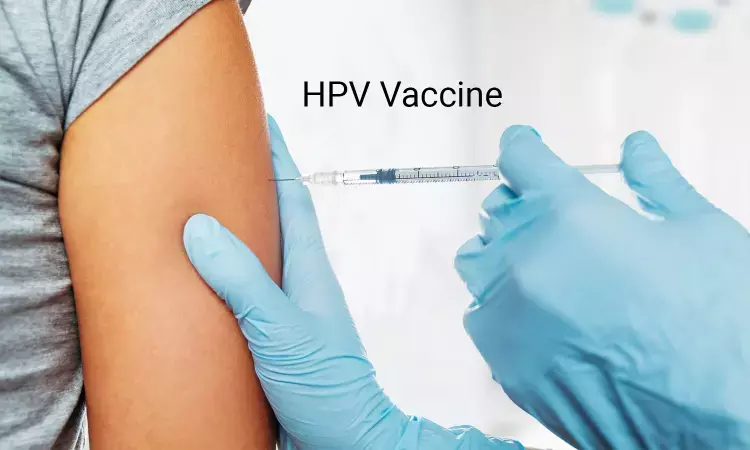- Home
- Medical news & Guidelines
- Anesthesiology
- Cardiology and CTVS
- Critical Care
- Dentistry
- Dermatology
- Diabetes and Endocrinology
- ENT
- Gastroenterology
- Medicine
- Nephrology
- Neurology
- Obstretics-Gynaecology
- Oncology
- Ophthalmology
- Orthopaedics
- Pediatrics-Neonatology
- Psychiatry
- Pulmonology
- Radiology
- Surgery
- Urology
- Laboratory Medicine
- Diet
- Nursing
- Paramedical
- Physiotherapy
- Health news
- Fact Check
- Bone Health Fact Check
- Brain Health Fact Check
- Cancer Related Fact Check
- Child Care Fact Check
- Dental and oral health fact check
- Diabetes and metabolic health fact check
- Diet and Nutrition Fact Check
- Eye and ENT Care Fact Check
- Fitness fact check
- Gut health fact check
- Heart health fact check
- Kidney health fact check
- Medical education fact check
- Men's health fact check
- Respiratory fact check
- Skin and hair care fact check
- Vaccine and Immunization fact check
- Women's health fact check
- AYUSH
- State News
- Andaman and Nicobar Islands
- Andhra Pradesh
- Arunachal Pradesh
- Assam
- Bihar
- Chandigarh
- Chattisgarh
- Dadra and Nagar Haveli
- Daman and Diu
- Delhi
- Goa
- Gujarat
- Haryana
- Himachal Pradesh
- Jammu & Kashmir
- Jharkhand
- Karnataka
- Kerala
- Ladakh
- Lakshadweep
- Madhya Pradesh
- Maharashtra
- Manipur
- Meghalaya
- Mizoram
- Nagaland
- Odisha
- Puducherry
- Punjab
- Rajasthan
- Sikkim
- Tamil Nadu
- Telangana
- Tripura
- Uttar Pradesh
- Uttrakhand
- West Bengal
- Medical Education
- Industry
HPV vaccination not tied to infertility in younger females

Earlier studies and published case series have suggested a potential association between human papillomavirus (HPV) vaccination and primary ovarian insufficiency (POI) leading to infertility.
A number of media stories had raised concerns about a link between HPV vaccines and infertility but this was refuted in a large cohort study published in Pediatrics in 2018.
Now researchers at University of Wisconsin in Madison have found no link between human papillomavirus (HPV) vaccination and infertility in women 20 to 33 years old in a new study. The study has been published in journal Vaccine.
The researchers said that the results should reassure clinicians and the public that HPV vaccines are safe and effective. They noted that a small number of case reports and media stories have raised concerns about a link between HPV vaccines and infertility, although this was refuted in a large cohort study published in Pediatrics in 2018.
HPV is a common sexually transmitted disease linked to cervical, anal, vulvar, vaginal, and nose and throat cancers in women and anal, penile, and nose and throat cancers in men.A nine-strain HPV vaccine has been found to be 96% effective at preventing HPV infections
The researchers used 2013 to 2016 National Health and Nutrition Examination Surveys, and analyzed the data of 1,114 women 20 to 33 years old.
Two logistic regression models were created and stratified by marital history. The first model evaluated the likelihood of infertility in women who had never been pregnant or were pregnant before vaccination. The second model included all women 20 to 33 years old who reported that they were infertile for any 12-month period, to account for potential delayed and/or nondurable post-vaccine infertility.
It was found in that in all 8.1% reported infertility. The women in the first model who were or had been married and had been vaccinated against HPV were less likely than others to report infertility (odds ratio, 0.04; 95% confidence interval, 0.01 to 0.57). No other association between HPV vaccination and infertility was identified.
"These results provide further evidence of HPV vaccine safety and should give providers confidence in recommending HPV vaccination," the authors wrote. "Further research should explore protective effects of HPV vaccines on female and male fertility."
These findings should lessen concern about potential impact on fertility from adolescent vaccination.
For further reference log on to:
Apr 3 Vaccine study
Dr Kamal Kant Kohli-MBBS, DTCD- a chest specialist with more than 30 years of practice and a flair for writing clinical articles, Dr Kamal Kant Kohli joined Medical Dialogues as a Chief Editor of Medical News. Besides writing articles, as an editor, he proofreads and verifies all the medical content published on Medical Dialogues including those coming from journals, studies,medical conferences,guidelines etc. Email: drkohli@medicaldialogues.in. Contact no. 011-43720751


